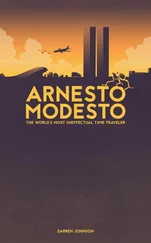James Gleick - Time Travel
Здесь есть возможность читать онлайн «James Gleick - Time Travel» — ознакомительный отрывок электронной книги совершенно бесплатно, а после прочтения отрывка купить полную версию. В некоторых случаях можно слушать аудио, скачать через торрент в формате fb2 и присутствует краткое содержание. Год выпуска: 2016, Издательство: Knopf Doubleday Publishing Group, Жанр: Старинная литература, на английском языке. Описание произведения, (предисловие) а так же отзывы посетителей доступны на портале библиотеки ЛибКат.
- Название:Time Travel
- Автор:
- Издательство:Knopf Doubleday Publishing Group
- Жанр:
- Год:2016
- ISBN:нет данных
- Рейтинг книги:5 / 5. Голосов: 1
-
Избранное:Добавить в избранное
- Отзывы:
-
Ваша оценка:
- 100
- 1
- 2
- 3
- 4
- 5
Time Travel: краткое содержание, описание и аннотация
Предлагаем к чтению аннотацию, описание, краткое содержание или предисловие (зависит от того, что написал сам автор книги «Time Travel»). Если вы не нашли необходимую информацию о книге — напишите в комментариях, мы постараемся отыскать её.
Time Travel — читать онлайн ознакомительный отрывок
Ниже представлен текст книги, разбитый по страницам. Система сохранения места последней прочитанной страницы, позволяет с удобством читать онлайн бесплатно книгу «Time Travel», без необходимости каждый раз заново искать на чём Вы остановились. Поставьте закладку, и сможете в любой момент перейти на страницу, на которой закончили чтение.
Интервал:
Закладка:
They sound vaguely Taoist themselves. “Self is universe. Please forgive interruption, crossing in mist.”
Reality vies with irreality. George doubts his sanity. He doubts his free will. He dreams of deep seas and crossing currents. Is he the dreamer or the dream?
“II descend, réveillé, l’autre côté du rêve . ” (Le Guin is quoting Victor Hugo now.) He descends, awakened, the other side of the dream.
The Alien says: “There is time. There are returns. To go is to return.”
—
“THIS ABOUT TIME being only a thingummy of thought is very confusing,” said one of E. Nesbit’s wise children, having been initiated into time’s new mysteries. “If everything happens at the same time—”
“It CAN’T!” said Anthea stoutly, “The present’s the present and the past’s the past.”
“Not always,” said Cyril. “When we were in the Past the present was the future. Now then!” he added triumphantly.
And Anthea could not deny it.
We have to ask these questions, don’t we? Is the world we have the only world possible? Could everything have turned out differently? What if you could not only kill Hitler and see what happens, but you could go back again and again, making improvements, tweaking the timeline, like the weatherman Phil (Bill Murray) in one of the greatest of all time-travel movies, reliving Groundhog Day until finally he gets it right.
Is this the best of all possible worlds? If you had a time machine, would you kill Hitler?
*1 Opinions vary. James E. Gunn (1958): “You are naked, because you can take nothing with you, just as you can leave nothing behind. Those are the two natural rules of time travel.”
*2 “…that the friend and companion who ran the household was the mother of one of these young people, that young Miss so and so, who played Badminton with a preoccupied air was the last capture of Hubert’s accomplished sex appeal. All this E. Nesbit not only detested and mitigated and tolerated, but…I think found exceedingly interesting.” Then again, Wells himself fathered children with various women besides his wife, and may have had an affair with one of Bland’s illegitimate daughters. Free love, after all.
*3 The book is dedicated to the British Museum’s leading Egyptologist, Wallis Budge.
*4 For example, Mr. Peabody solemnly explains that Isaac Newton had a brother, Figby, who invented a cookie.
*5 The reader may recall an entirely different Time and Again. There have been at least three. As the time-travel express got going, in the second half of the twentieth century, publishers must have had a panicky realization that they were using up all the possible titles. They run together in the mind: Time and Again — Time After Time — From Time to Time — Out of Time — A Rebel in Time — Prisoner of Time — The Depths of Time — The Map of Time — The Corridors of Time — The Masks of Time — There Will Be Time — Time’s Eye. At least four novels have been titled Time After Time.
*6 Rosenfeld then started a blog, The Counterfactual History Review, and embarked on a collection to be titled If Only We Had Died in Egypt!: What Ifs of Jewish History.
*7 In an odd coincidence, Le Guin had gone to high school with Philip K. Dick, as she realized later. “ Nobody knew Phil Dick,” she told The Paris Review. “He was the invisible classmate.”
*8 She said to an interviewer, Bill Moyers, “The book is full of dreams and visions, and you are never sure which is which.”
*9 Indeed, it is the essence of doublethink. “This demands a continuous alteration of the past.” The literal rewriting of history was Winston Smith’s day job, remember, in the Minitrue RecDep (Ministry of Truth Records Department).
ELEVEN
The Paradoxes
This seems to be a paradox. But one must not think ill of the paradox, for the paradox is the passion of thought, and the thinker without the paradox is like the lover without passion: a mediocre fellow.
—Søren Kierkegaard (1844)
PROPOSITION: Time travel is impossible, because you’d be able to go back and kill your grandfather, in which case you, the murderer, would never have been born; and so on, and so on.
We’ve been here before. We are in the domain of logic, which is, let’s remember, a country distinct from the domain of reality. Its inhabitants speak a dialect of their own, resembling natural language and often quite understandable, but full of pitfalls. A thing can be logically possible yet empirically impossible. If the logicians give us permission to build a time machine, we may still not be able to build it.
I doubt that any phenomenon, real or imagined, has inspired more perplexing, convoluted, and ultimately futile philosophical analysis than time travel has. (Some possible contenders, determinism and free will, are bound up anyway in the arguments over time travel.) The disputation was well under way while H. G. Wells was still alive to be bemused by it. In his classic textbook, An Introduction to Philosophical Analysis, John Hospers tackles the question: “Is it logically possible to go back in time—say, to 3000 B.C., and help the Egyptians build the pyramids? We must be very careful about this one.” The possibility is easy to state—we habitually use the same words to talk about time as we do when talking about space—and it’s easy to imagine. “In fact, H. G. Wells did imagine it in The Time Machine, and every reader imagines it with him.” (Hospers misremembers The Time Machine: “a person in 1900 pulls a lever on a machine and suddenly is surrounded by the world of many centuries earlier.”) Hospers was a bit of a kook, actually, who achieved the distinction, unusual for a philosopher, of having received one electoral vote for president of the United States. *1His textbook, first published in 1953, remained standard through four editions and forty years.
His answer to the rhetorical question is an emphatic no. Time travel à la Wells is not just impossible, it is logically impossible. It is a contradiction in terms. In an argument that runs for four dense pages, Hospers proves this by power of reason.
“How can we be in the 20th century A.D. and the 30th century B.C. at the same time ? Here already is one contradiction….It is not logically possible to be in one century of time and in another century of time at the same time.” You may pause to wonder (though Hospers doesn’t) whether a trap is lurking in that deceptively common expression “at the same time.” The present and the past are different times, therefore they are not the same time, nor at the same time. Q.E.D.
That was suspiciously easy. The point of the time-travel fantasy, however, is that the lucky time travelers have their own clocks. Their time can keep running forward, while they travel back to a different time as recorded by the universe at large. Hospers sees this but resists it. “People can walk backward in space, but what would ‘going backward in time’ literally mean?” he asks.
And if you continue to live, what can you do but get one day older every day? Isn’t “getting younger every day” a contradiction in terms—unless, of course, it is meant figuratively, as in “My dear, you’re getting younger every day,” where it is still taken for granted that the person, while looking younger every day, is still getting older every day?
(He gives no hint of being aware of F. Scott Fitzgerald’s short story in which Benjamin Button does precisely that. Born as a seventy-year-old, Benjamin grows younger every day, until infancy and oblivion. Fitzgerald admitted the logical impossibility. The story has many offspring.)
Читать дальшеИнтервал:
Закладка:
Похожие книги на «Time Travel»
Представляем Вашему вниманию похожие книги на «Time Travel» списком для выбора. Мы отобрали схожую по названию и смыслу литературу в надежде предоставить читателям больше вариантов отыскать новые, интересные, ещё непрочитанные произведения.
Обсуждение, отзывы о книге «Time Travel» и просто собственные мнения читателей. Оставьте ваши комментарии, напишите, что Вы думаете о произведении, его смысле или главных героях. Укажите что конкретно понравилось, а что нет, и почему Вы так считаете.












